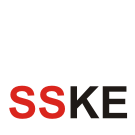From SSKE
Abstract
Abstraction is a powerful thing. During the nineteenth century, the Industrial Revolution was built on many powerful abstractions, such as mass, energy, work, and power. During the twentieth century, the information revolution was built on many powerful abstractions, such as binary digit or bit, binary coding, and algorithmic complexity. Here, we propose an abstraction for the twenty-first century, in which there is an emerging revolution in thinking about business and economics based on a service-dominant logic. The worldview of service-dominant logic stands in sharp contrast to the worldview of the goods-dominant logic of the past, as it holds service—the application of competences for benefit of others— rather than goods to be the fundamental basis of economic exchange. Within this
new worldview, we suggest the basic abstraction is the service system, a configuration of people, technologies, and other resources that interact with other service
systems to create mutual value. Many systems can be viewed as service systems, including families, cities, and companies, among many others. In this paper, we show how the service-system abstraction can be used to understand how value is co-created, in the process laying the foundation for an integrated science of service.



